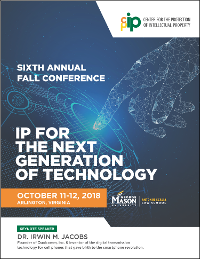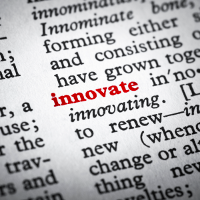The following post comes from David Ward, a rising 2L at Scalia Law and a Research Assistant at CPIP.
 By David Ward
By David Ward
“Casual metaphors can have dangerous consequences.” CPIP Senior Fellow for Innovation Policy Jonathan Barnett’s new paper, The ‘License as Tax’ Fallacy, seeks to undo what he considers to be a dangerous, casual metaphor, namely, that intellectual property is a “state-granted monopoly” and therefore licensing is a “monopolistic tax” on consumers. Read more
 By
By  Earlier this year, CPIP’s Adam Mossoff and Kevin Madigan
Earlier this year, CPIP’s Adam Mossoff and Kevin Madigan  By
By  A group of judges, former judges and government officials, law professors and economists with expertise in antitrust law and patent law
A group of judges, former judges and government officials, law professors and economists with expertise in antitrust law and patent law  CPIP has released a new policy brief,
CPIP has released a new policy brief,